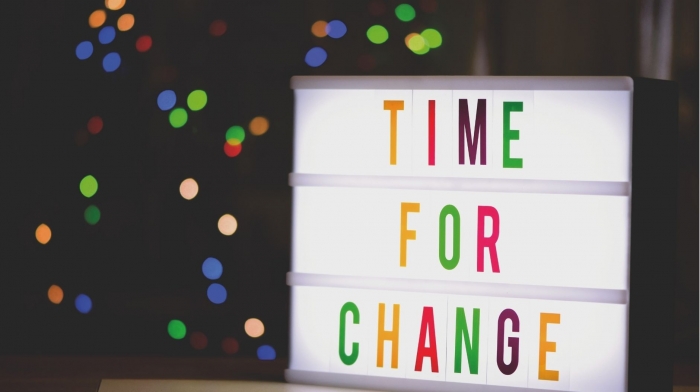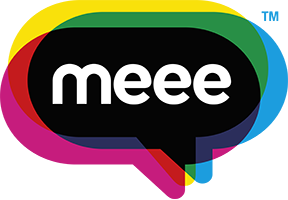Resetting Your Business And Life Post Covid-19

There are decades where nothing happens; and there are weeks where decades happen. Vladimir Lenin
Most of us have had to make many changes as we’ve dealt with Covid-19. When we’ve been lucky, we have been able to stay home, and have some enjoyable and meaningful down time reconnecting with family, knowing that the majority of our wage is being paid. If we are unlucky, we have been struggling financially and emotionally, or worse we have lost a loved one.
However, amongst the gloomy predictions of Great Depression-like economic slumps and massive job losses, there is hope. And opportunity. The opportunity for us, as a society to change, and an opportunity for each individual to make changes to their lives and create a better balance.
Nobel Peace Prize winner and social entrepreneur Muhammad Yunus reminds us that pre-Covid wasn’t actually that great! The ‘new normal’ everyone is talking about smacks of compromise, limitation and lack. Yunus suggest we should not be planning for economic recovery post-Covid, we should redesign the economy and, therefore, business from scratch. I couldn’t agree more.
Never in our history have we stood as such a juncture. We can scramble to go back to a business as usual that was often dysfunctional, unfair and damaging or we can redesign something better for all of us as well as the planet.
There are already encouraging signs of this much needed reset. The city of Amsterdam has embraced economist Kate Raworth’s Doughnut Economics – a blueprint for redefining priorities as they seek to rebuild after lockdown. Raworth’s model, moves us away from our toxic obsession with growth and seeks instead to solve humanity’s 21st century challenge; how to meets the needs of all within the means of the planet.
Business needs to adapt. We need to adapt. And as we adapt, we need to define what we want this ‘new’ to be, and work towards creating a work/life that provides a healthy balance. Our embrace of technology, home working and digital solutions is unlikely to recede completely even once a vaccine is found. While this move was enforced by the virus many, especially Gen X and older, have been surprised to find the technology is more than up to the task and home working gives greater freedom, flexibility and provides a better work/life balance.
But, how do we maintain connection and develop strong, resilient and empathetic cultures when the people in them no longer travel to an office or share the same physical space? This will be a particular challenge as move into a lower-touch reality. This will mean adapting to social distancing regulations, potentially a series of temporary lockdowns, travel restrictions and new hygiene guidelines. Customers will be much more cautious when it comes to physical contact, enclosed spaces and large gatherings. Potentially this could mean that we become less connected, which could pose a further danger to our happiness and mental health. So, maintaining a connection has to be part of our new lives and new business models and ethos.
Human beings are social animals. Forget new normal, we need ‘New Balance’. And that starts with the human being. There is no coincidence that the businesses and governments that have fared best against the Covid storm have been led by kind, empathetic and open leaders. Think Jacinta Ardern – New Zealand’s Prime Minster. Arden represents a welcome shift away from authoritative power. She does Facebook live sessions and answer questions kindly, honestly and transparently.
So, how do you create a ‘New Balance’ within your business?
- Start by focusing on the human-beings within the business and help them find a balance that works for them and for you. Happy, healthy employees with a sustainable balance between their work lives and their home lives will always be more productive, more loyal and stay in the business longer (i.e. you’ll reduce expensive staff turnover). The business that will succeed are those that recognise the human element of their teams and their customers.
- Develop systems that recognise we need low physical touch, but high human interaction if we are to remain safe and also connected. Human connection is key – we buy from humans, we are inspired, motivated, loyal to, and supportive of humans – not faceless companies. So, make human connection the key focus – within the parameters of safe physical distancing. Perhaps this means more communication, or picking up the phone rather than emailing, arranging group Zoom calls, sharing personal anecdotes, and perhaps most importantly, helping both staff AND customers find a new balance in their lives. Share what you’ve learnt, share the processes that work. Maybe even encourage your customers to join you in them!
Here are five practical steps to help make this ‘new balance’ a reality in your business and in the lives of your staff, your customers – and yourself. Share these tips with those around you and help them create the space to turn these into regular habits:
- Take time out, every day to get outside, ideally in nature or a local park. Walk, pay attention to what’s going on around you. Don’t cut yourself off from what’s around with music, audio books or podcasts. Instead, notice the trees, the bird song, the change of the seasons. Take this time, even if it’s just a few minutes, to learn how to just ‘be’. Listen. Think. Spend time in silence.
- Master your mornings: Start your day from a place of positivity. Focus on what you want to achieve that day and take a minute or two to remind yourself what you are already grateful for in your life. Write down six things you are grateful for, and six things you absolutely must achieve today. Then use these as your focus for the day.
- On your commute, or while you eat your breakfast (if you no longer commute) read an inspirational book. For example, ‘Meee in a Work Minute’ has 60 one-minute nuggets of wisdom including life hacks, advice, insights, science, short exercises, and thought experiments to ensure you start the day with positivity and confidence. Another great book is A. C. Grayling’s ‘The Meaning of Things’ which had a profound impact on my life. There are dozens of great books so pick those that resonate with you. Many are also available as audio books.
- Eradicate unnecessary work. Take some time to consider what’s really important in your life. If something doesn’t add value at work or at home, eliminate it from your life. Focus on what matters professionally and personally. Focus on what makes you happy. And make these things the priority.
- Connect with people you care about – at work and at home. At work seek to find ways to maintain some of the flexibility that became essential during Covid-19. Honour both the human being and the employee. Find ways (by using the tips above) to maintain a connection and to find a balance that works for both parts of your life; the business/work and the home. At home, talk to each other, eat together as a family and maintain the strengthened bonds facilitated by the pandemic.
Businesses that have adopted kind, empathetic and human-first approaches are the ones that are moving forward in difficult times. The businesses that are going to thrive in the new economy are going to be the ones that are focused on building community and fostering belonging for customers and employee.
The Covid experience has helped us to appreciate what is most important the simple things that are at the heart of being human such as love, family, happiness, safety, gratitude etc. Let’s keep focused on these human things, at home and at work.
Ready to take the next step with Meee?
Download the ‘MyMeee’ app (available on iPhone/Apple or Android/Google), explore our books, listen to our 'Just Meee' podcasts and subscribe to our monthly newsletter, ‘Meee Moments’, for exclusive tips, inspiring stories, and updates to keep you on track with your journey!
At Meee, we’re dedicated to inspiring everyone, everywhere, every day to Find, Live, and Give their unique Magic. As Magic Makers, we have the power to transform ourselves, our organisations, and our communities. Together, we can build a better world. Join us on this journey and be part of the change. Just ask@meee.global


